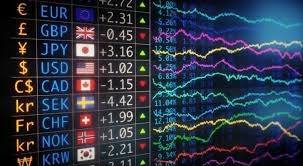
The allure of online Forex trading has attracted a multitude of traders eager to capitalize on the foreign exchange market’s volatility. Whether you’re a seasoned trader or a curious newcomer, understanding the dynamics of Forex is crucial to navigating this complex market. To enhance your experience, consider exploring trading online forex Islamic Trading Platform, which caters specifically to traders seeking adherence to Islamic principles while participating in Forex trading.
What is Online Forex Trading?
Online Forex trading involves buying and selling currency pairs in a decentralized market. The goal is to profit from fluctuations in exchange rates. For instance, if you believe that the Euro (EUR) will rise against the US Dollar (USD), you would buy EUR/USD. Conversely, if you think the Euro will fall, you would sell the pair.
The Forex Market: A Global Perspective
The Forex market operates 24 hours a day, five days a week, making it the most active financial market globally. Traders participate from all corners of the world, driven by economic events, geopolitical developments, and market sentiment. This accessibility allows traders to engage in transactions at any time, making Forex trading not only flexible but also highly dynamic.
Key Terminology in Forex Trading
Before embarking on your trading journey, it’s essential to familiarize yourself with common Forex terminology:
- Currency Pair: A pair of currencies traded against each other, such as EUR/USD.
- Bid and Ask Price: The bid price is the price at which you can sell a currency, while the ask price is what you’ll pay to buy it.
- Pip: The smallest price change in the exchange rate of a currency pair, typically the fourth decimal place.
- Leverage: Using borrowed capital to increase the potential return of an investment.
Choosing a Forex Broker
Selecting the right Forex broker is crucial for your trading success. Here are some factors to consider:
- Regulation: Ensure that the broker is adequately regulated by a recognized authority to ensure security of funds.
- Trading Platform: Look for user-friendly trading platforms that offer charts, indicators, and tools for effective analysis.
- Spread and Fees: Compare the spreads (the difference between the bid and ask price) and any additional fees that might apply.
Developing a Trading Strategy
A well-defined trading strategy is essential for long-term success in Forex trading. Here are a few popular strategies:
1. Day Trading
Day trading involves opening and closing trades within the same day, capitalizing on short-term market movements.
2. Swing Trading

Swing trading aims to capture price swings in the market, holding positions for several days to weeks.
3. Scalping
Scalping is a high-frequency trading strategy where traders aim to profit from small price changes, executing many trades throughout the day.
Technical Analysis: The Key to Successful Trading
Technical analysis involves the use of charts and indicators to predict future price movements based on historical data. Key indicators include:
- Moving Averages: Used to identify the trend direction by smoothing price data.
- Relative Strength Index (RSI): Measures the speed and change of price movements to identify overbought or oversold conditions.
- Bollinger Bands: Provides a relative definition of high and low prices, indicating volatility and potential price reversals.
Managing Your Risks
Risk management is a crucial aspect of Forex trading. Here are some tips to help mitigate risks:
- Set Stop-Loss Orders: This allows traders to limit their potential losses by automatically closing a trade at a predetermined price.
- Only Risk What You Can Afford to Lose: Always trade with money you can afford to lose, reducing the emotional impact of losing trades.
- Diversify Your Portfolio: Avoid concentrating your investments in one area; instead, diversify across different currency pairs.
Stay Informed: The Importance of Market Analysis
Staying updated on economic indicators, news releases, and geopolitical events is vital for making informed trading decisions. Key economic data affecting currency markets includes:
- Interest Rates: Central bank policies influence currency strength; higher interest rates typically attract more foreign capital.
- Employment Data: Job reports provide insights into economic health and can influence monetary policy decisions.
- Inflation Rates: Inflation can erode currency purchasing power, impacting trading strategies.
Emotional Discipline in Trading
Trading can evoke strong emotions, from excitement to frustration. Maintaining emotional discipline is critical. Here are tips to manage emotions:
- Stick to Your Plan: Create a trading plan and adhere to it to avoid impulsive decisions driven by fear or greed.
- Avoid Overtrading: Resist the temptation to trade excessively to recover losses, as it often leads to more significant losses.
- Take Breaks: Step away from the screen to clear your mind and return with a fresh perspective.
Conclusion
Online Forex trading offers vast opportunities for those willing to learn and adapt. By understanding the market, developing effective strategies, managing risks, and maintaining emotional discipline, traders can enhance their chances of success. Whether you are trading full-time or as a side activity, continuous education and practice are keys to thriving in this competitive arena. With diligent preparation and the right tools, you can unlock the potential of the Forex market and secure your financial future.
